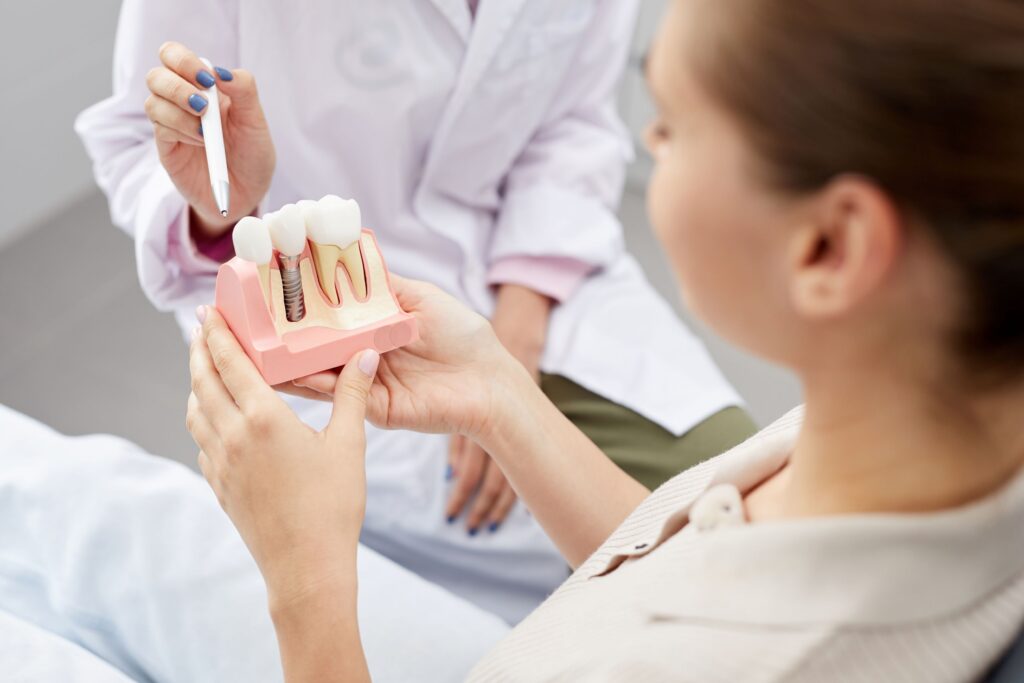Helpful Healing: 3 Dental Implant Post-Op FAQs
February 21, 2025

Tooth loss can detract from your daily quality of life because it affects everything from your ability to enunciate, chew food, and smile confidently. Many people develop anxiety, worrying that they’ll be judged for the gaps in their grins.
Fortunately, your dentist can replace your missing teeth with dental implants. These restorations are the only ones that include a titanium rod embedded into your jawbone for added strength and stability. However, wonder what’s involved in healing from their surgery. Continue reading to learn answers to 3 common post-op questions so you know what to expect!
Inquiry #1: Can I Drive Home Afterward?
Many patients have questions about what happens immediately following their procedure, like whether they can drive themselves home. Typically, it’s recommended that you plan to have someone you trust take you home when your surgery is complete because you may still be under the influence of an anesthetic or sedative, depending on your unique circumstances.
These medications are intended to reduce your body’s response to external stimuli during your surgery so that you remain comfortable throughout. Afterward, it can take up to 24 hours to leave your system, and because it potentially impacts your reflexes and judgment, it’s not considered safe to drive until the effects dissipate.
Inquiry #2: Can I Continue Eating Normally?
Another frequent question dentists hear after implant surgery is whether there are dietary restrictions that must be followed. Typically, it’s best to avoid hot foods and drinks for several hours after your appointment because your mouth will likely still feel numb, and you might accidentally burn your lips, tongue, or gums.
Also, your mouth must form a blood clot at the site to prevent a potential infection, and overly hot foods are known to damage it, prolonging your recovery. You should drink plenty of water to keep your mouth clean, but avoid straws, because the force of suction can dislodge the blood clot.
After that, you may want to stick with soft foods to avoid triggering your already tender teeth and gums until they stop hurting. Popular options include pudding, yogurt, scrambled eggs, soft noodles, applesauce, and mashed potatoes.
Inquiry #3: How Long Does Full Recovery Usually Take?
Many people are surprised when they learn it can take three to six months to heal after dental implant surgery. However, this longer recovery period is necessary for your prosthetic to be successful. Once the titanium rod is placed, your jaw grows new bone every time you bite down. Eventually, enough material is generated to fully encompass and fuse with the metal pole so it becomes a permanent part of your mouth.
Once your gums have mended, your dentist will provide a tooth-shaped cap customized to match your missing teeth to seamlessly restore your grin’s appearance and functionality.
About the Practice
Patients at Whitinsville Family Dentistry benefit from two experts eager to help people of all ages build and maintain their healthiest, most beautiful smiles. Dr. Tubo and Dr. Agnihotri share more than a decade of combined experience offering a comprehensive menu of services to meet your needs under one roof, including dental implants. They have both been awarded Fellowship status with the Academy of General Dentistry and completed specialized training in implants and oral surgery. They can complete every step of the procedure in the office, so you don’t have to seek an outside specialist. You can request an appointment on the website or call (508) 234-8107.
No Comments
No comments yet.
RSS feed for comments on this post.
Sorry, the comment form is closed at this time.

